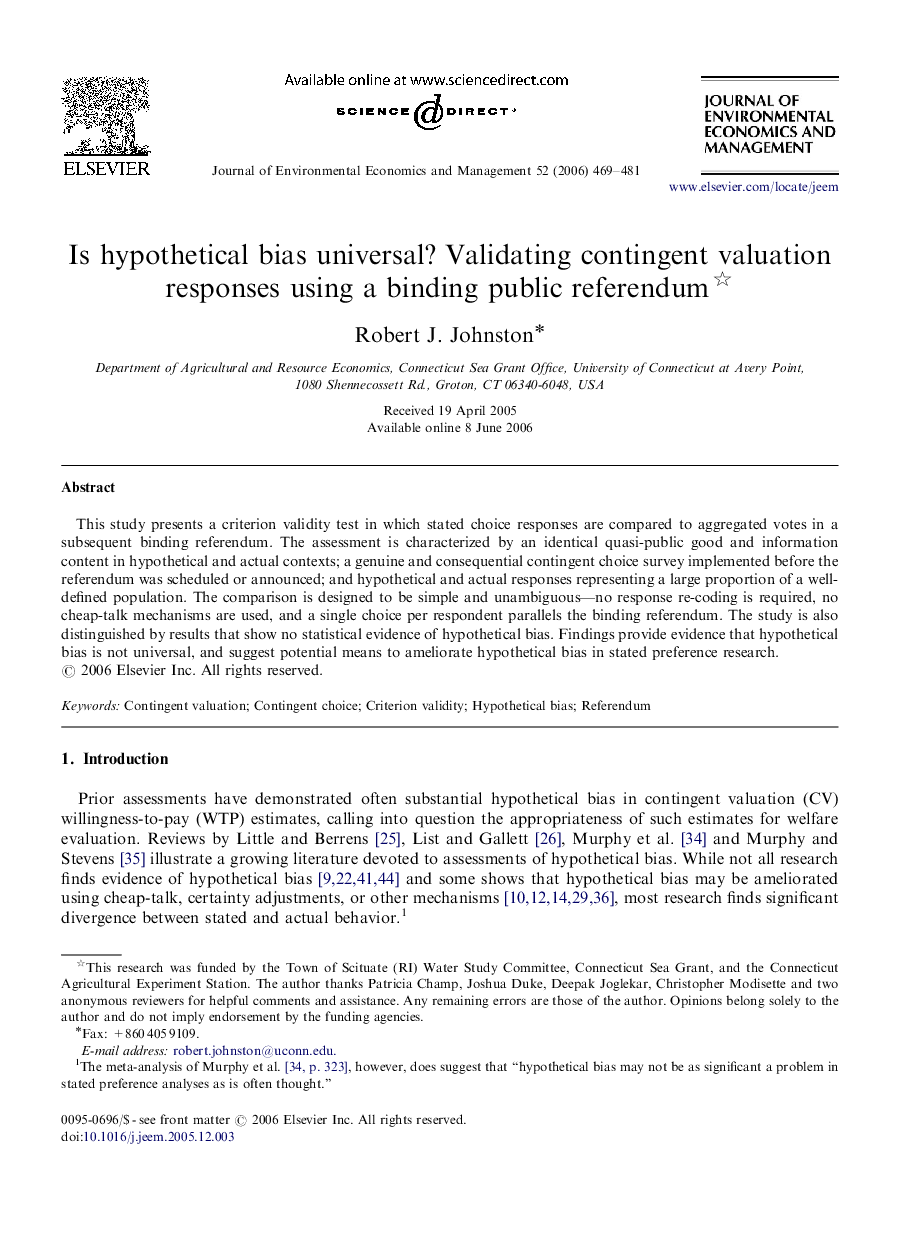| Article ID | Journal | Published Year | Pages | File Type |
|---|---|---|---|---|
| 959403 | Journal of Environmental Economics and Management | 2006 | 13 Pages |
This study presents a criterion validity test in which stated choice responses are compared to aggregated votes in a subsequent binding referendum. The assessment is characterized by an identical quasi-public good and information content in hypothetical and actual contexts; a genuine and consequential contingent choice survey implemented before the referendum was scheduled or announced; and hypothetical and actual responses representing a large proportion of a well-defined population. The comparison is designed to be simple and unambiguous—no response re-coding is required, no cheap-talk mechanisms are used, and a single choice per respondent parallels the binding referendum. The study is also distinguished by results that show no statistical evidence of hypothetical bias. Findings provide evidence that hypothetical bias is not universal, and suggest potential means to ameliorate hypothetical bias in stated preference research.
